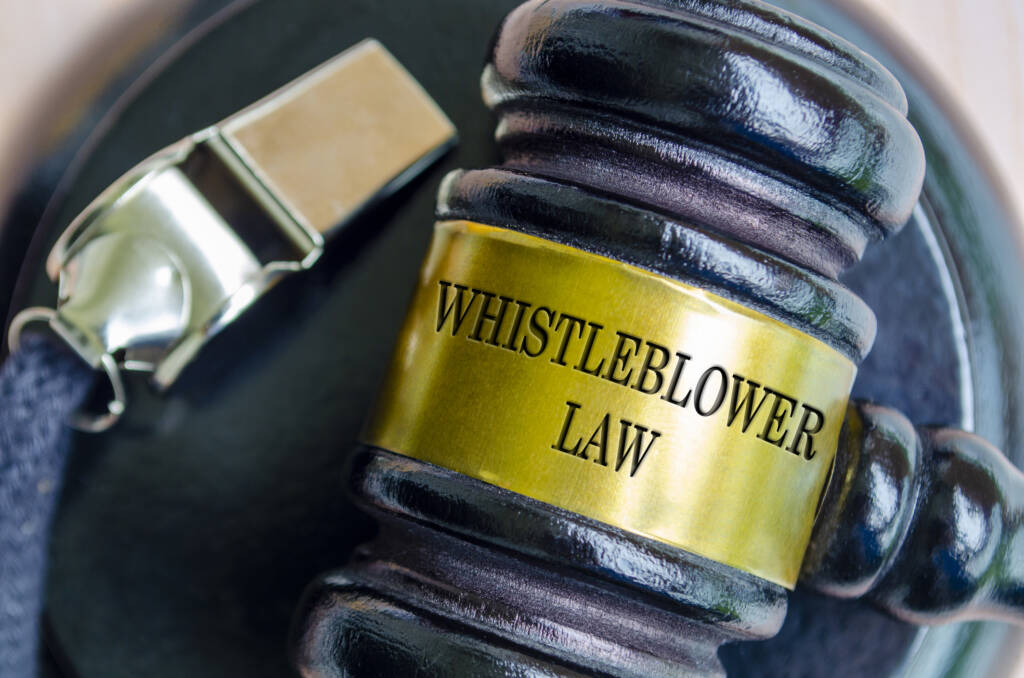The Speak-Up Culture
What Every Firm Needs in the Age of The Whistleblower
The latest numbers from the U.S. Securities and Exchange Commission (SEC) send a clear message: the whistleblower era isn’t just here—it’s thriving.
In its FY 2024 Annual Report to Congress, the SEC Whistleblower Program reported a record-breaking 24,980 tips and awarded more than $255 million to whistleblowers. That’s not just a footnote in the world of financial enforcement—that’s a seismic shift. And for businesses, it’s a loud wake-up call.
If your organization doesn’t have an internal incident management program in place, now is the time to act. Because when employees feel they can’t speak up internally, they go elsewhere. And increasingly, that “elsewhere” is straight to the regulator.
The Rise of the Whistleblower
The SEC Whistleblower Program, established under the Dodd-Frank Act in 2010, has transformed the landscape of corporate accountability. Designed to empower individuals with original, credible information about securities violations, the program offers:
- Anonymity
- Protection against retaliation
- Financial incentives
Since its inception, the SEC has awarded over $2.2 billion to whistleblowers, helping recover nearly $5 billion in penalties. This isn’t just policy—it’s impact. And it’s growing.
What kinds of issues are employees bringing to light? These are often problems that originate within the organization—typically first noticed by individuals on the ground who see the day-to-day operations up close. In Fiscal Year 2024, the most frequently reported concerns included:
- Market manipulation (37%)
- Offering fraud (21%)
- Crypto and Initial Coin Offering (ICO)-related fraud (8%)
- Corporate disclosures and financials (8%)
Why Internal Reporting Matters More Than Ever
Here’s the uncomfortable truth: If employees don’t feel safe or heard internally, the SEC’s door is wide open—and sometimes, incentivized.
There’s no legal mandate in the U.S. for companies to have a formal whistleblower program. But there is a legal requirement to prevent misconduct. So here are three questions firms need to ask themselves:
- How can you uncover abuse without a mechanism to hear about it?
- If you face an enforcement action, how will you prove you tried to prevent it?
- How will you respond when your first indication of a problem is a regulator’s letter—rather than a concerned employee’s email?
These are not hypothetical questions. In FY 2024 alone, the SEC took enforcement action against 11 entities for attempting to impede whistleblowers. According to the SEC’s report one of the cases resulted in an $18 million penalty—the largest of its kind.
Beyond the SEC
Whistleblower protections in the U.S. and abroad span multiple sectors and regulatory bodies, each aiming to shield individuals who report misconduct and ensure accountability.
In the U.S., laws like the Whistleblower Protection Act (WPA) safeguard federal employees, while the False Claims Act (FCA) incentivizes individuals to expose fraud against the government by awarding a share of recovered damages. The Sarbanes-Oxley Act (SOX) protects whistleblowers in publicly traded companies, prohibiting retaliation and requiring internal reporting procedures. Additional programs under OSHA and the IRS extend protections to those reporting safety violations and tax fraud.
Across Europe, the EU Whistleblower Directive unifies standards for safe, confidential reporting and prohibits retaliation. In the UK, laws like the Public Interest Disclosure Act (PIDA) and sector-specific policies, including those under the Financial Services and Markets Act (FSMA) and the NHS, ensure protections across industries—from finance to healthcare.
Together, these frameworks reinforce a global shift toward transparency, accountability, and protection for those who speak up.
Building a Culture Where Speaking Up is Standard
Creating an employee compliance culture isn’t about checking boxes—it’s about building trust. Employees should know that their concerns are welcomed, not punished. Building this sort of culture makes employees feel that they are part of the solution.
An effective internal program does more than prevent wrongdoing; it empowers integrity. It enables early detection, supports swift remediation, and—most importantly—helps companies do the right thing before a regulator gets involved.
Firms need to begin with:
- Clear, accessible policies
- Anonymous, secure reporting channels
- Consistent training and awareness
- Documented response and follow-up procedures
- Leadership buy-in at every level
How StarCompliance Helps You Get There
At StarCompliance (Star), we help companies move from reactive compliance to proactive culture-building. Our Incident Managment & Whistleblowing Solutions are designed to support ethical decision-making, reduce risk, and promote a transparent workplace where concerns don’t get buried—they get addressed.
Here’s how we do it:
- Anonymous Reporting Channels: Safe, secure, and confidential—give employees a voice without fear.
- Audit Trails & Documentation: Record every step of the response process to show diligence during internal and regulatory reviews.
- Policy & Training Management: Automate attestations and deliver engaging compliance training to keep key messages top-of-mind.
- Behavioral Monitoring: Track activities like personal trading and potential conflicts of interest to surface red flags early.
- Global Capabilities: Central oversight meets local nuance—perfect for multinational firms.
The Bottom Line
The whistleblower landscape is evolving fast—and companies need to keep up. The SEC, as well as multiple international agencies aren’t just rewarding whistleblowers; they are holding companies accountable for how they treat them.
Firms without robust internal programs are increasingly at risk—not just of misconduct, but of being blindsided when that misconduct becomes public through a regulator’s press release.
Creating a culture of transparency, accountability, and ethical leadership isn’t just good governance. It’s a competitive advantage. And with Star, it’s easier than ever to build. To learn more about Star’s SaaS-based employee compliance solutions for Incident Management & Whistleblowing Solutions, schedule your personalized demo here.
Let’s turn compliance from a checkbox into a conversation—and make integrity your strongest asset.

Empowering Whistleblowing





